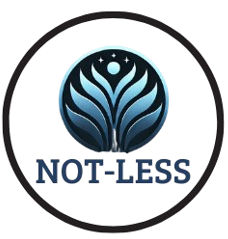My friends didn’t know how to help me when I was struggling with infertility. They didn’t know what to say, and so they said nothing.
with infertility. They didn’t know what to say, and so they said nothing.
When I was in the thick of infertility—IVF cycles, miscarriages, and in the times of failed fostering, halted adoption—I watched some of my closest relationships grow quiet. Friends who had been in my life for decades stopped checking in. They didn’t ask how I was doing. They didn’t know how to offer support, and I didn’t know how to ask for it.
In the beginning, we talked. I shared updates on IVF rounds, the medications, the tests. But I never talked about the physical toll, the emotional crash, or the way miscarriage rewired my nervous system. I didn’t tell them my final pregnancy ended as a chemical one. I didn’t say I was grieving a life that never arrived.
After four years with no baby, they stopped asking. And I stopped offering.
How to help your friend struggling with infertility
If you’re wondering, here’s what I wish mine had done:
1. Gently ask. Even when it’s awkward.
If you’re a close friend, a simple, soft check-in matters more than you know. Try:
“Hey, I know you’re in the middle of an IVF cycle. Just wanted to see how you’re feeling and how I can support you right now.”
You don’t need the perfect words. You just need to show up.
2. Acknowledge the loss—don’t bypass it.
When you know an IVF round has failed, or the adoption fell through, don’t say, “It’ll happen eventually.” That lands like a dismissal.
Try this instead:
“I’m here. I know this has been incredibly hard. I’m so sorry. Do you want to talk about it?”
3. Avoid silver linings. Stay present.
When someone is childfree not by choice, hope can feel like a weapon. Saying, “Just stay positive” can erase the pain they’re living in.
Instead, try:
“I know how much this means to you. I can only imagine how heavy this is. What do you need right now?”
If you’re unsure what to say or want additional guidance, this infertility support guide from Northwestern Medicine offers more ways to support a friend through infertility with care and compassion.
I’m not a therapist. These may not be the most polished tips. But silence is worse. Silence makes us feel invisible.
If just one friend had said those things to me, I would have felt seen. I would have felt like I mattered—even when nothing else was working.
That’s all most of us want.


Every close friend of mine ghosted me, to the point that I hate to look at my (very small intimate ceremony) wedding photos because none of them are in my life. My mother had no interest, never asked one thing, ghosted me when I was bleeding out at home with the miscarriage. My sister-in-law in Australia had her kid via IVF and ghosted my husband after he emailed her about our struggles – that was 10 years ago. NO one was there for us when we miscarried, no one stepped up. The blogs saved me back then with the infertility but with adoption? No one gave a sh*t. One blogger in the infertility days mailed me a mug that had my advice of what to say on it “it sucks, it’s fucked, and i love you”. Of course she then got pregnant via IVF, told me I should get a surrogate as if suddenly she had all the answers and didn’t care that I was at that point broke, and all was lost there.
Just like when we lose a loved one through any other type of death, being present, giving hugs and just telling someone they are loved is more important than anything else.
Thank you for sharing this—it’s heartbreaking and so real. I hear you. It’s a grief that so few people truly understand or acknowledge, and it’s isolating. Your words are a reminder that even in this silence, we’re still allowed to grieve, to be angry, to demand the simple dignity of “it sucks, it’s fucked, and I love you.” It matters. And it matters that you spoke this out loud here.